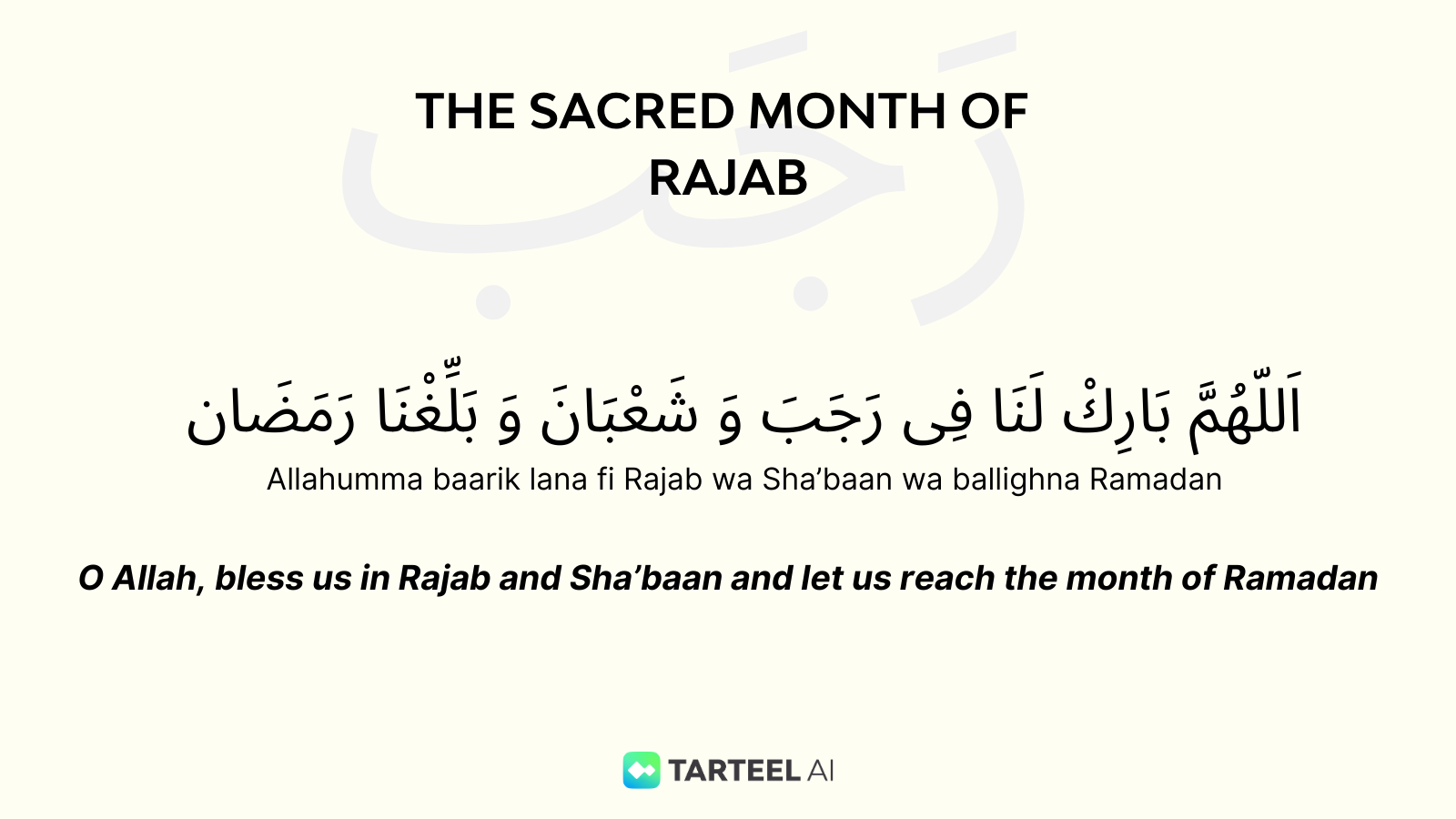How To Make The Most of Rajab
The Hijri calendar
The Hijri calendar, also known as the Islamic calendar, is a lunar calendar consisting of 12 months in a year of 354 or 355 days. The months are based on the phases of the moon:
- Muharram
- Safar, Rabi al-Awwal
- Rabi al-Thani
- Jumada al-Ula
- Jumada al-Akhirah
- Rajab
- Sha'ban
- Ramadan
- Shawwal
- Dhu al-Qadah
- Dhu al-Hijjah
Allah (SWT) States:
“Indeed, the number of months ordained by Allah is twelve—in Allah’s Record since the day He created the heavens and the earth—of which four are sacred. That is the Right Way. So do not wrong one another during these months. And together fight the polytheists as they fight against you together. And know that Allah is with those mindful ˹of Him˺” (Surah At-Tauba, 9:36)
The four sacred months of the Hijri calendar are Rajab, Dhu al-Qadah, Dhu al-Hijjah, and Muharram. These months are considered to be of great importance in Islamic tradition and culture, and have a special importance in comparison to the other months.
During these months, fighting and waging war is forbidden, and all disputes are to be resolved peacefully. The respect and importance of these months predate Islam with the Arabs refraining from fighting, tracing back to the laws of Ibraham A.S.
The Prophet Muhammad (PBUH) is reported to have said:
"The division of time has turned to its original form which was current when Allah created the Heavens and the Earths. The year is of twelve months, out of which four months are sacred: Three are in subsequent Dhu al-Qadah, Dhu al-Hijjah, and Muharram, and (the fourth is) Rajab of (the tribe of) Mudar which comes between Jumada-Thaniyah and Sha’ban." (Sahih Al-Bukhari)
What to do in the sacred month of Rajab
Imam Abu Bakr al-Warraq said: “In the month of Rajab you sow the seeds, in Sha`ban you irrigate them and in Ramadan you reap the harvest.”
Unlike the three Sacred months which are in succession, Rajab stands alone in the middle of the year, meaning "to respect, honor, and to be made great". This marks an amazing opportunity for change in our lives leading into Sha'ban and Ramadan.
We should observe this month as a time for spiritual reflection and increased worship, including reconnecting with the Quran and performing Umrah if possible. Additionally, we should increase our acts of charity, mercy, good deeds, and kindness to others, as these actions will be rewarded greatly by Allah and doubled. The prohibition on wrongdoing is also highlighted in the ayah from Surah At-Tauba “So do not wrong one another during these months”. Just as rewards are increased, so too are punishments for transgressing multiplied in these months.
The four months were deemed sacred due to the severity of committing a sin during them and the special status Allah gave them. Sinning during the sacred months is considered more heinous than during the other months, so it is important to refrain from any wrongdoing and seeking forgiveness during Rajab.
Fun fact:
The Night Journey (Isra) and the Ascension (Mi'raj) are believed to have occurred on the 27th night of Rajab: When the Prophet Muhammad (PBUH) was taken on a journey by the angel Jibril from Mecca to Jerusalem and then to the heavens, where he met with previous prophets and received revelations from Allah.
Our Top Tips For a Productive Rajab
- Recite and memorize more Quran
- Prioritize your prayers (no procrastination)
- Make more voluntary prayers
- Seek forgiveness, always
- Make up/keep voluntary fasts
- Send more Salawat upon our beloved Prophet PBUH
- Be conscious of bad deeds and habits (idle talk, gossiping, feeling hatred, envy, anger, etc)
- Increase your charity and community work
- Fulfil the rights of people around you
Be sure to make the most of this month and set yourself up for success by creating habits and practices that will keep you away from any transgressions and increase your rewards leading into Ramadan and the year beyond inshaAllah.






